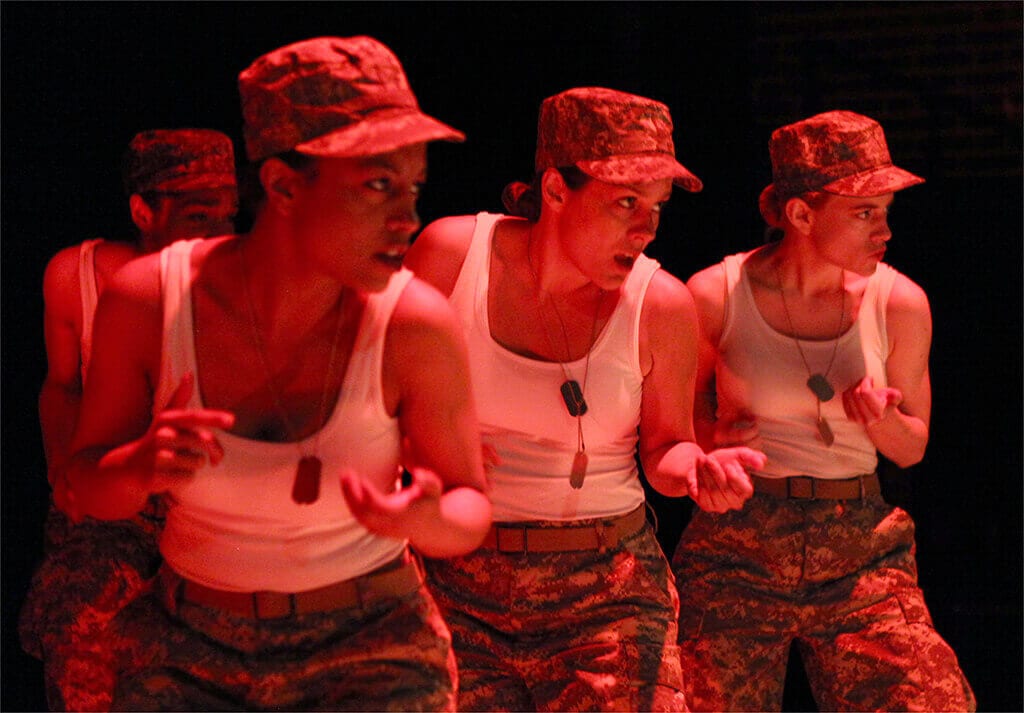Sometimes, in the ‘comment’ section of the more left-wing papers, an article will materialise about the damaging effects of war, or the difficulties that soldiers have adjusting back into civilian life. These appear once in a blue moon, and The Lonely Soldier Monologues, adapted from a book by Helen Benedict, should be applauded for giving these voiceless soldiers – more importantly, voiceless female soldiers, the significant minority – a loud, clear voice. Whilst it functioned more as a piece of propaganda than a play, it was thoroughly engaging.
As the play begins, the lights black out and red light fills the stage. Women walk on from either side, marching in straight lines and singing songs about war: “What makes the green grass grow? Blood, blood, red, red blood.” They soon stop, salute, and form two straight lines, with each woman coming forward, one at a time, to talk to the audience about her experience of war. Each of the characters had served in either Iraq or Afghanistan for a period between 2003 – 2006. The first half of the play deals with their various motivations for joining the army, and their actual experience of combat. The second half, appropriately, focuses on the difficulties they had assimilating back into normal, American society. Both sections illustrated both halves of one very big problem.
Dressed in army uniforms, each of the women is instantly defined by her profession, defined by war. However, as each character comes forward one by one, the individual is given a distinctive voice – rather than being empowered by the military, by serving their country, the woman is trapped inside the suit. Sergeant Santiaga Flores was played wonderfully well by Tamina Davar. Tough, and with battlescars from home and warfare, Davar gave the right balance of tenderness and strength to her performance. Another stand out performance was delivered by Rachel Handshaw, the damaged girl from DC who knew how to use a gun and a knife for all the wrong reasons. In fact, the acting was excellent across the board. It is undeniably difficult to hold an audience’s attention by simply standing and talking, and every actress managed it.
However, reviewing this production as a play is a demanding task. Whilst it is engaging and full of insight, the nature of the story means it is almost entirely static. The qualities that normally define a play – character progression, a sense of catharsis perhaps, excitement, tension – were completely missing. Whilst thoroughly effective staging did make it more “dramatic” (including particularly creative sound effects and lighting, which brought the stage to life without props), it still felt rather more like a glorified series of speeches. However, this what the play intended to be – reviewing it as something it is not seems unfair.
If you want a night of fascinating, political storytelling, then this is the play for you. However, do not expect a classic theatrical experience. The Lonely Soldier Monologues is not Shakespeare, but it is consistently interesting, well performed and not something you will find on the West End.

